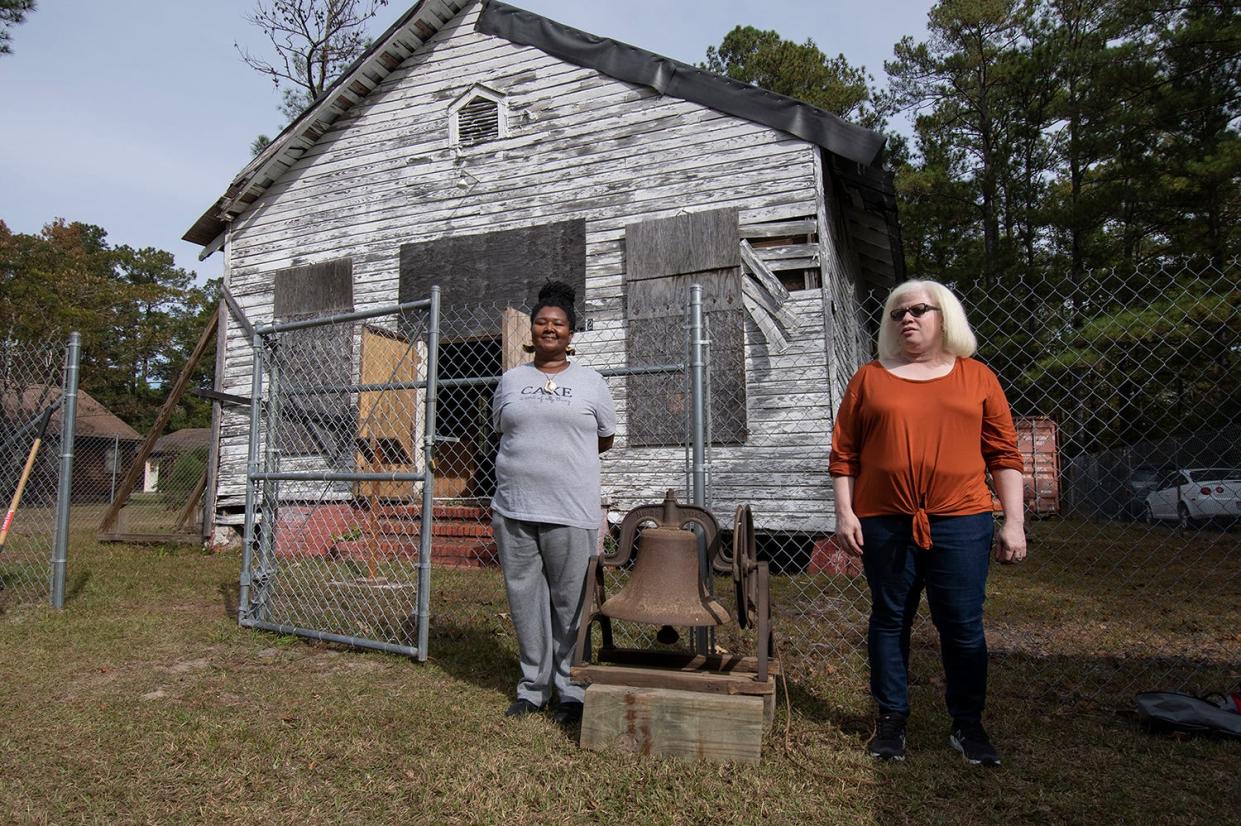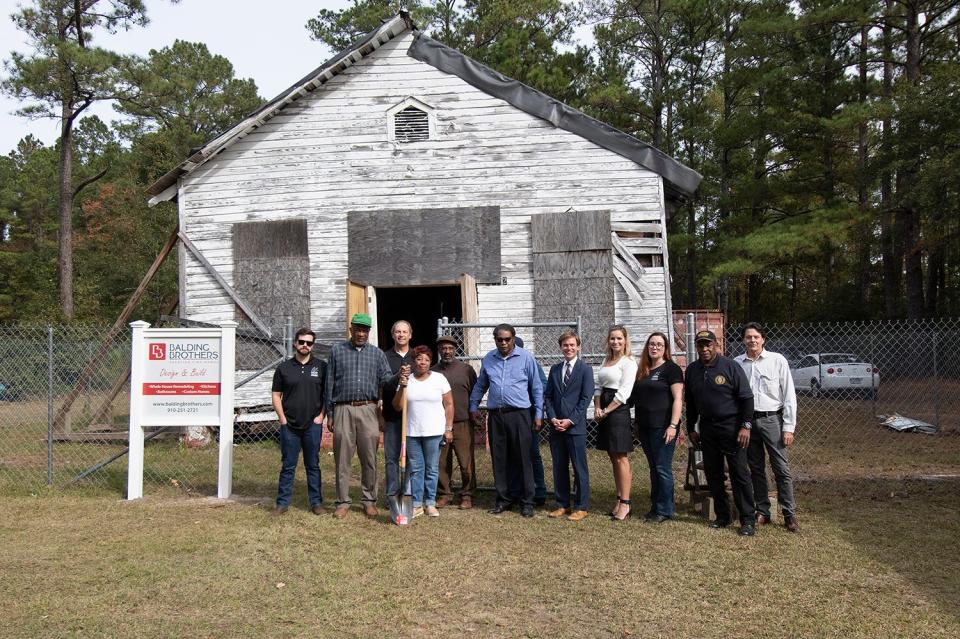Restoration on historic Leland church, built by former slaves after the Civil War, begins

As Brunswick County rapidly changes from rural enclave to sprawling suburban destination, Alfonso Beatty is working to preserve its African-American history.
Beatty is the president of the Cedar Hill / West Bank Heritage Foundation, which since 2013 has sought to preserve and improve the cultural heritage of the historically Black area of Navassa and northern Leland.
One of the non-profit organization's first goals was to restore the Reaves Chapel Church, which was built shortly after the Civil War by formerly enslaved people who worked on nearby rice plantations. Now, after years of work and several partnerships, the restoration work has begun.
According to Beatty, with the developments being constructed all around them, the work couldn't begin soon enough.
"That was one of the major driving factors," he said of the decision to restore the church. "We didn't want to see it demolished and destroyed. The history would be erased from this area."
STAY CONNECTED: Get all of the latest Brunswick County news by liking the Brunswick Today Facebook page.
The chapel was originally built along the banks of the Cape Fear River, Beatty said, but to better serve the community it was relocated to it current location at 2024 Cedar Hill Road NE in Leland in 1911 using logs and oxen. It served the community, including descendants of the formerly enslaved people, as a church, a venue for popular speakers, and as community gathering until 2005 when it fell out of use.
"The area is rapidly changing as we speak," Beatty said. "It will not look anything like it use to. The dynamics, the demographics are going to change in the next 10 years."
The heritage foundation partnered with Coastal Land Trust, a conservation and stewardship organization, who bought the property in 2019. Though COVID-19 has slowed the work down, the groups have since raised enough money to start the restoration work, beginning with a groundbreaking Nov. 10.
More: These 9 churches helped shape Wilmington's history

The church structure will be stabilized, have its walls and floors repaired, and will have its original stained-glass windows reinstalled. However, the groups are still raising funds for infrastructure that will be needed in the future, like parking and restrooms.
Beatty estimates they will need about $200,000 more to fully complete the restoration project. Once complete, the goal is for the historical site to anchor the northern end of the Gullah-Geechee Cultural Heritage Corridor as well as Navassa's future greenway.
Beatty's hope is that when the project is finished, no matter how much change comes to the area, Brunswick County's Black history will never be forgotten.
"From slavery to Jim Crow to today, we're trying to tell the whole story that we did a lot with the little that we had," he said. "We made significant contributions in this area through our free labor and it was not just a given."
People can donate to the restoration project on the Coastal Land Trust website, coastallandtrust.org/reaves, or by mailing the heritage foundation at P.O. Box 1732 Leland NC, 28451.
More: Gullah Geechee heritage trail proposed for Brunswick County
Reporter John Orona can be reached at 910-343-2327 or jorona@gannett.com.
This article originally appeared on Wilmington StarNews: Historic Black church in Brunskwick County, NC being restored

